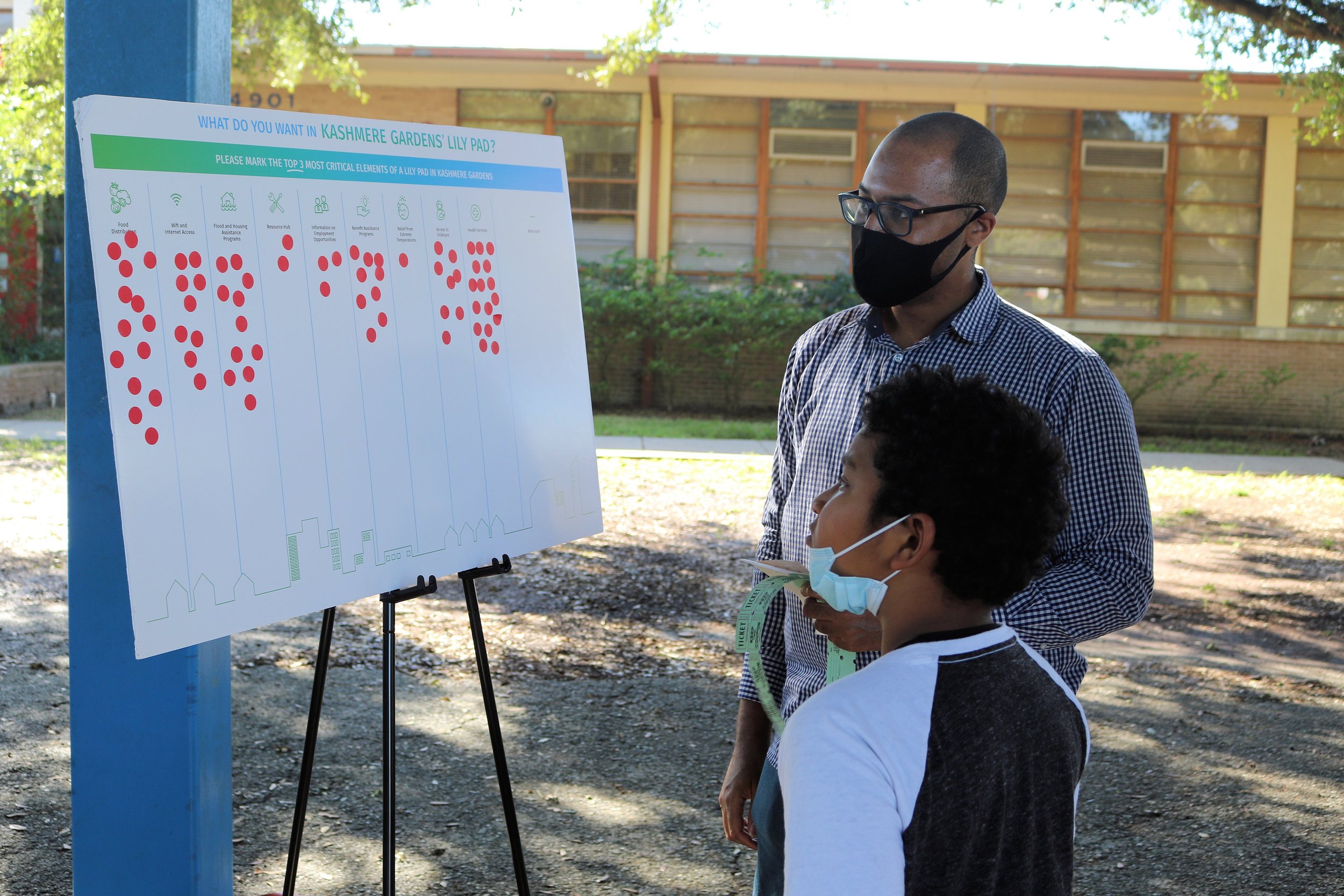Resilience Building in Action
Kashmere Gardens
Strengthening Neighborhood Resilience through Community Engagement in Kashmere Gardens
Kashmere Gardens, a neighborhood in Houston, Texas, has been dealt a series of extreme climate shocks over the past few years. Hurricane Harvey in 2017 caused intense flooding to nearly 3,700 homes -- or 44% of Kashmere Gardens’ homes. With many homes requiring repair in the years since, the neighborhood has struggled to recover. In 2021, this neighborhood became the epicenter of an unexpected winter storm, and the same homes in need of repair were struck with power outages and burst pipes. These climate shocks have further exacerbated the neighborhood’s underlying vulnerabilities: stemming from decades of structural inequities, 29% of households in Kashmere Gardens live below the federal poverty line and over 55% of its residents are unemployed. As extreme weather events become more erratic and intense, there is even greater urgency to build resilience solutions that ensure Kashmere Gardens residents are better equipped to withstand the known and unknown risks facing their community.
In January of 2021, with support from J.P. Morgan Chase and in partnership with the City of Houston, RCC began piloting a two-year Resilient Neighborhoods Program in Kashmere Gardens. The goal of the program is to help neighborhood residents recover from the challenges of the last few years, while tackling chronic stresses, mitigating climate risks, and advancing key identified community priorities. This project is focused on the design and implementation of a Lily Pad, also known as a resilience hub, that will act as a physical space for residents to access services and resources before, during, and after emergencies, while also providing opportunities to foster broader connectivity within the community.
The success of the Resilience Neighborhood program relies on two key components: broad, cross-sectoral partnerships and deep community engagement. As a neutral convener between the community and the City of Houston, RCC helped develop and strengthen partnerships across 20 City agencies -- predominantly, the Office of Complete Communities and Office of Resilience and Recovery -- and the Northeast Houston Redevelopment Council, Kashmere Gardens’ preeminent community based organization. These partnerships have been critical to building project champions, accelerating the Lily Pad design, and garnering the support of additional City and community leaders to further advance the work. To ensure the design and location of the Lily Pad aligns with the neighborhood priorities, the team solicited feedback from over 250 residents through a community survey and from over 100 parents and children at a Fall Resilience Fest held at the Kashmere Gardens Elementary School. These findings revealed a lack of basic services in the community (e.g., health services, food distribution, and internet access) and reaffirmed the Lily Pad as a key asset to help prepare for and recover from emergencies.
In the coming year, RCC is working closely with the City and NEHRC to determine how the Lily Pad can help foster greater community cohesion and fill critical service gaps, especially related to home and building retrofits to prepare for extreme weather events. Additionally, RCC plans to establish a series of smaller Lily Pads or “Resilience Spots” across Kashmere Gardens, building out a hub and spoke model to enhance overall service and resource access year round. With several identified locations, RCC will continue connecting with these asset owners and the community to determine which sites are best suited for this network.

